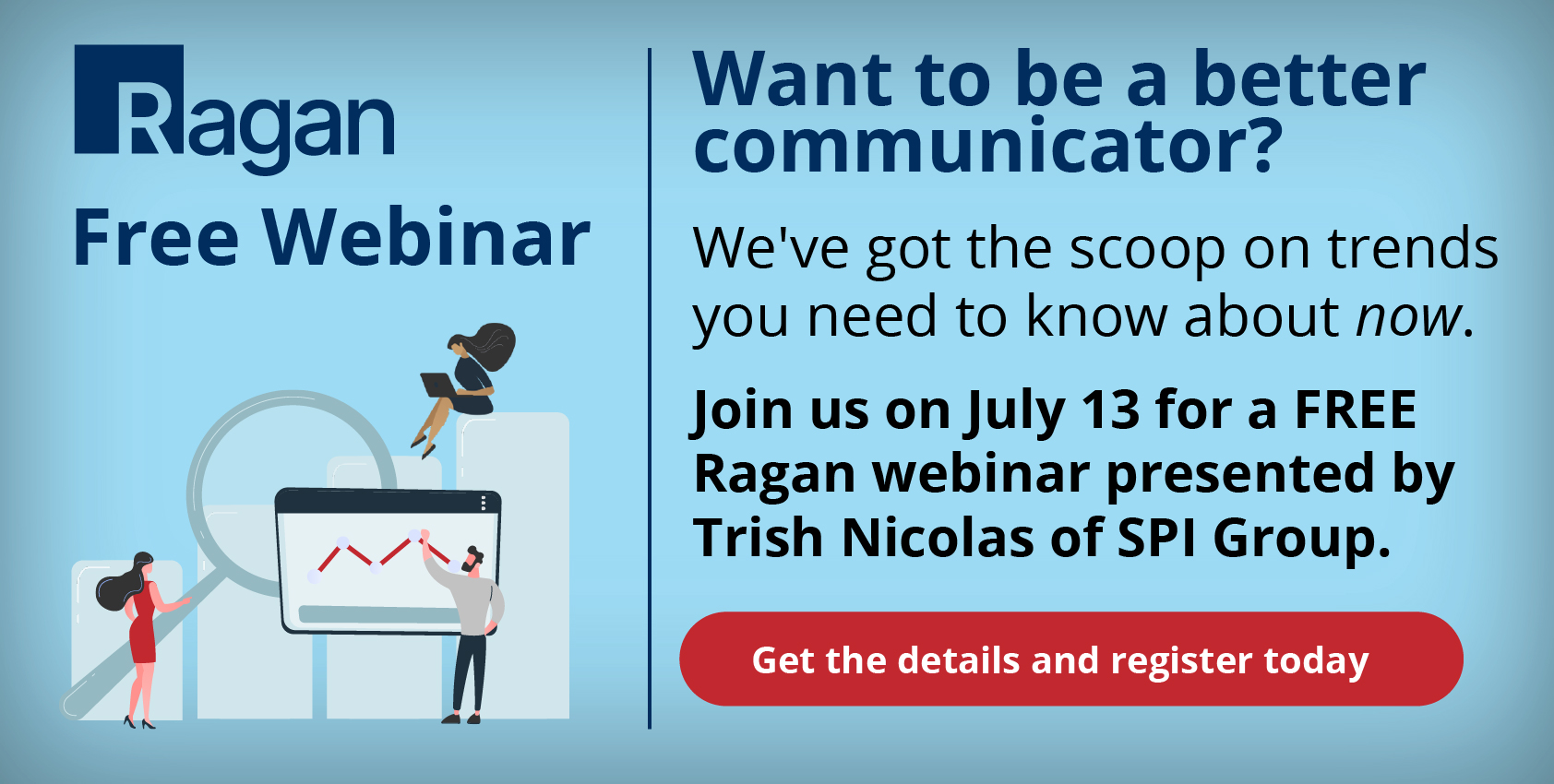My Top Five Takeaways from Ragan’s Employee Communications and Culture Conference
By Jhané Gibson,
Account Executive
May 23, 2023

Recently, I attended Ragan’s Employee Communications and Culture Conference in Chicago. As I attended the keynote presentations and panel discussions, a common theme emerged: the recognition that communications professionals play a vital role in shaping their organization’s success by closely partnering with leadership and stakeholders.
Many insights and perspectives on how commmunicators can fulfill this role were shared throughout the conference. Here are the five takeaways that resonated most with me:
- Measure everything. Establish benchmarks for communications in your organization. These data points can help you define your strategy, hone your tactics, or adjust your plans when warranted. You can’t get to your ideal state without knowing where you’re headed and what success looks like. Measuring initiatives will equip you to shift your communications from being an output channel to an outcomes driver. Metrics also inform strategic business decisions and help to demonstrate communications ROI.
- Develop an employer/employee brand to help strengthen understanding of and commitment to purpose. Branding and communications play an integral role across the talent spectrum. A strong employer/employee brand helps you craft consistent messages and build workforce engagement and external reputation that support and reinforce a clear connection to purpose. Additionally, having an authentic employer/employee brand can demonstrate to stakeholders that your organization is trustworthy and transparent. Your brand should be consistently amplified across multiple channels and be the baseline for all communications and initiatives.
- Embed DEI&B practices in the roots of your organization. DEI&B is an integral part of organizational success as it impacts talent attraction, retention, and engagement. Yet, it’s still largely considered an afterthought. For DEI&B practices to succeed, it’s important to think about how DEI&B connects to your brand and to activate and amplify visible actions that support belonging across your workforce. We call this storyDOing, which can help your internal and external audiences recognize the authenticity of your initiatives. In addition, when you communicate your progress and goals through different channels in different ways, you’re showing that you are working toward reaching and engaging people where they are, which helps foster a DEI&B-focused culture.
- Preparation is key. Having a crisis communications playbook is an imperative, largely because it can help to mitigate negative impact, but also because it helps your organization present itself as a leader to internal and external audiences in times of turmoil. When developing a playbook, consider your potential risks, audiences, who’s on your team and how you can equip them through training, what your core processes are, and the messaging toolkit you will need to activate the plan. This advance planning will allow you to swiftly distribute clear, concise messaging to your stakeholders. When a crisis occurs, don’t forget to take copious notes throughout so you can measure the effectiveness of your strategy and tactics for future planning.
- Support and equip your managers. Middle managers are often overextended and underutilized, when their most pertinent need is to feel empowered. When managers have the trust, support, and information they need to effectively manage their workload and teams, they set a healthy precedent for their direct reports. As communicators, we must stay close to people in managerial roles so we can discover and provide for what they need, including a space to connect with and support each other. Additionally, when they have the proper tools to help them understand and speak about the business, they become better equipped to have knowledgeable conversations with their direct reports, especially as they cascade information to employees in their organizations.
As an agency that specializes in audience engagement and communications performance, SPI Group can help you turn these insights into action. Ask us how.






